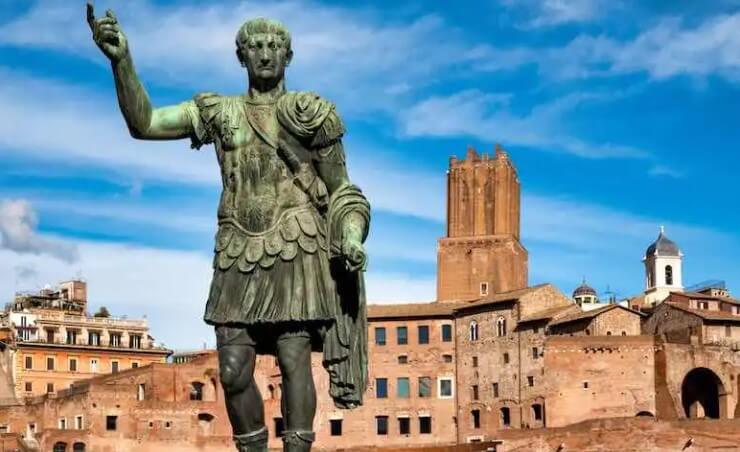Nerva became emperor immediately after the assassination of Domitian in 96 AD. The assassination of Domitian marked the end of the Flavian dynasty and changed the rules of succession to the throne. Nerva served Rome and its emperors throughout his life and served as consul twice, in 71 and 90 AD.
He was now called to a higher position. He immediately promised to put an end to the tyranny of Domitian's rule, swearing that he would never execute any senator, no matter what the provocation.
Promises, promises...
Soon this promise was exhausted to the limit. Domitian bought the army's loyalty with a large increase in pay, and when he was killed the army was furious. Seeking revenge, the Praetorian Guard stormed the palace and demanded the execution of those responsible.
Nerva confronted the soldiers, giving his life by exposing his neck to their swords. The soldiers simply laughed and killed many of his friends and allies. Surprisingly, Nerva thanked them for delivering justice, but was greatly humiliated. His will was broken, and he soon died.
A sharp turn
At this point, history took a sharp turn. Shortly before Nerva's death, Roman generals were arguing about who should become the next emperor. They chose Trajan, a former army commander, senator and governor of Upper Germany.
Trajan, the first emperor born outside of Italy, was from southern Spain, more details at https://www.istmira.com/drugoe-drevniy-mir/18554-imperator-trajan-kratko. html . His appointment as general was a bold and important move, signaling that educated and wealthy men from across the empire were eligible for the highest office.
Empire Expansion
Empire expansion was also quite successful. As Emperor, Trajan expanded the Roman Empire, making it larger than ever before. He conquered Dacia (now part of Romania), which provided land for Roman settlers and rich spoils from gold and salt mines.
He then attacked the Parthians, Rome's old enemies in the East, who lived in what is now Iran. By 115 AD, he had captured the Parthian capital Ctesiphon and reached the Persian Gulf.
The Roman Empire now stretched across Europe and the Middle East, from the borders of Scotland to southern Spain. It included North Africa, Western and Central Europe, as well as what is now Israel, Turkey, Lebanon, Syria and parts of Iran and Iraq. It will never get bigger.
Good management
At home, Trajan was just as busy. He respected the Senate and tried to find competent and honest officials to govern the provinces.
With the army, Trajan was fair but strict, ordering the execution of the Praetorian Guard who defied Nerva. As for Christians, he ignored those who wanted to be persecuted and instead treated them like other citizens, punishing them only when they deserved it.
Welfare and Public Works
He was generous to the population of Rome, distributing money and increasing the number of poor citizens who could receive free grain. Trajan also began a massive public works program, building bridges, harbors, and aqueducts. Finally, he cut taxes and started a new welfare program for poor children. This work brought him recognition from many, including the statesman and writer Pliny the Younger.
Trajan held power until 117 AD. His civilized rule set the tone for future generations; his expansion of the Roman Empire turned it into a multicultural and multi-ethnic melting pot that is still relevant today, 2,000 years later.




